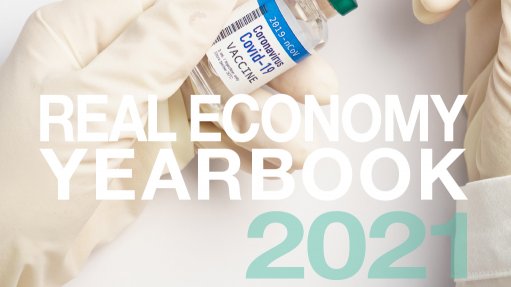
Don’t waste this crisis
How to recover from the global Covid-19 pandemic continues to occupy the minds of business leaders and policymakers.
There is growing consensus that it is simply not good enough for economies to ‘bounce back’ and return to their previous development pathways.
‘Bouncing forward’, however, will require companies and governments to adopt strategies and policies that begin to repair the health, supply-chain, social, environmental and climate fault lines that have been distressingly exposed during the pandemic.
For countries, such as South Africa, where these fault lines were already deeper and wider before Covid than in most other countries, the nature of the recovery will be as important as its pace.
Returning to ‘business as usual’ may be tempting but is far too risky to contemplate.
Business as usual was already failing the majority of South Africans before Covid, as reflected in the country’s chronically high, and growing, unemployment figures, surging inequality and, most worryingly, rising poverty, eroding some of the gains made in this area since 1994.
Pursuing an historic reset that is fully aligned with South Africa’s rights-based Constitution will be difficult. It will require a new social contract involving some painful negotiation and trade-offs.
Failing to do so would not only ‘waste a crisis’ – as the saying goes – but will also maintain a social and economic trajectory that is unsustainable.
This Real Economy Yearbook points to the fact that across just about every sector featured, from automotive to mining, there is an acceptance that a different approach is needed if the foundations are to be laid for more socially, environmentally and economically sustainable industries.
Every sector is facing its own transition, with the pace and scale of some transitions, such as those under way in energy and mobility, being almost unprecedented.
The knock-on effects of the rise of renewable electricity and electric vehicles are enormous, with mining companies having to scramble to discover and extract the critical metals and minerals that will progressively displace the central role that oil has played in energy for about a century.
In just about all cases, these transitions are underpinned by a belated acceptance that the climate crisis represents an existential threat.
Governments and businesses are, thus, finally starting to commit to strategies and practical actions designed at capping the rise in the average global temperature to below 1.5 °C above preindustrial levels – a level seen as the best way of avoiding catastrophe, albeit not the many climate-related disasters that are arising with ever greater frequency and that will continue to do so.
This response is set to shape just about every corporate or government action until at least 2050, but probably beyond, and will define everything from access to finance to the ability to trade.
For South Africa, these transitions represent not only a great risk but also a tremendous opportunity.
To access the Real Economy Yearbook flipbook click here